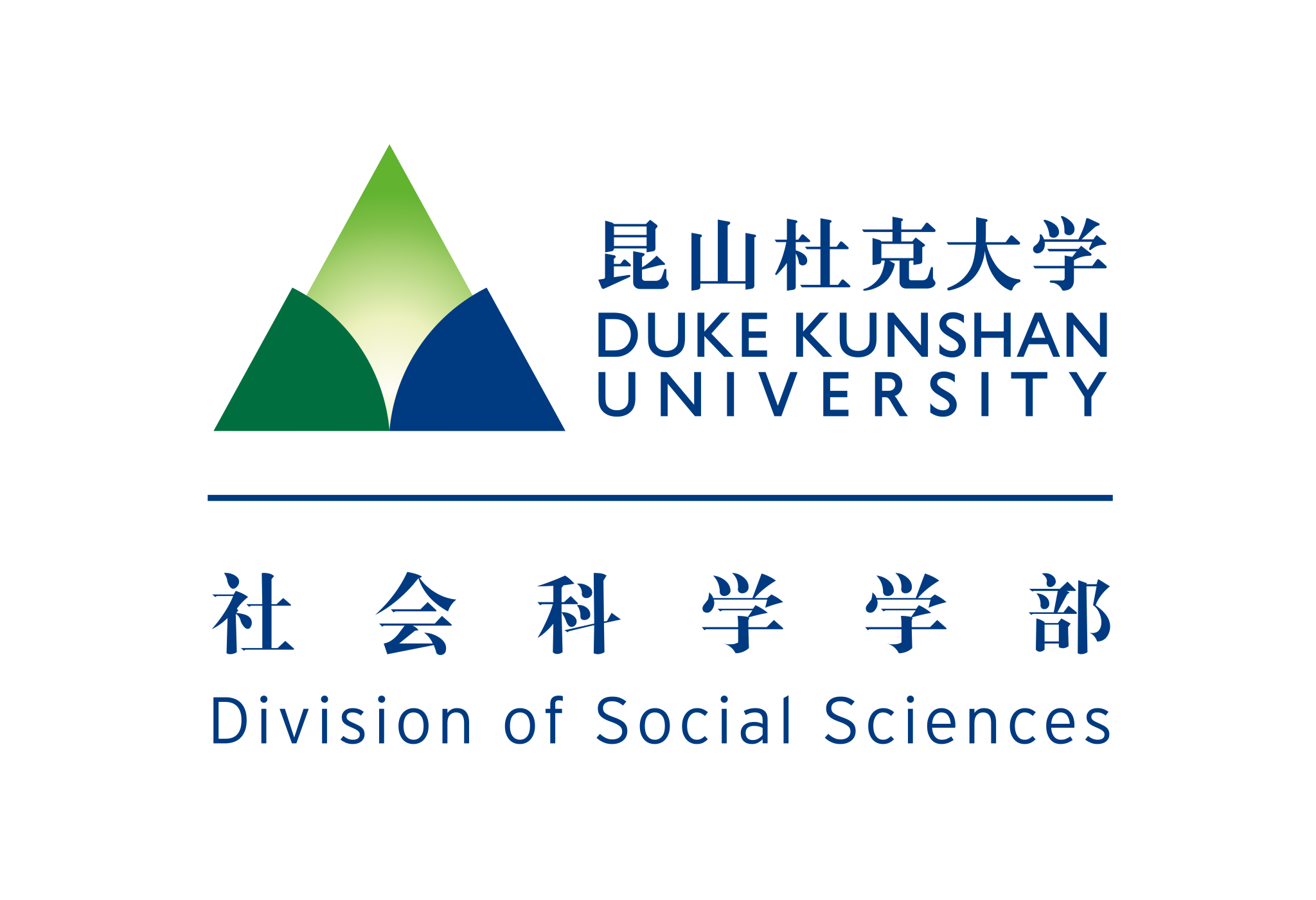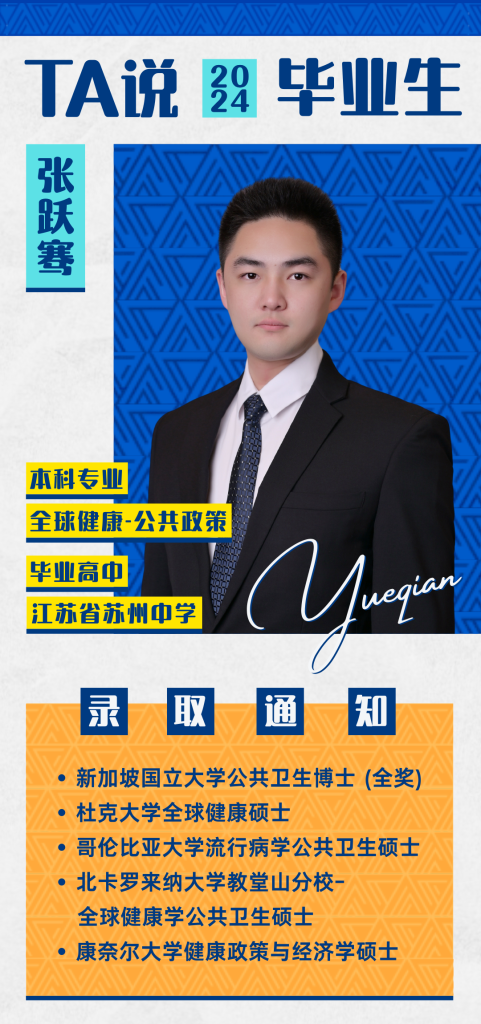
01 Why DKU?
I think there are two reasons.
One is the liberal arts education. Duke Kunshan University focuses on cultivating students’ innovative thinking and interdisciplinary abilities. The school’s curriculum design is flexible, encouraging students to choose courses across majors and develop a diversified knowledge system. DKU also provides students with abundant practical opportunities and internship programs, making students more competitive after graduation.
The other is small-class teaching. Duke Kunshan University adopts this model, with relatively small number of students in each class. This teaching model enables students to have more opportunities to communicate and interact directly with Professors, which helps improve learning outcomes and personal development.
02 Stories About My Major And Me
Before undergraduate studies, I had a strong interest in the impact of diseases on a global scale. I studied topics related to the outbreak of African swine fever in 2018 and thought about the food insecurity and negative economic impact brought about by the epidemic. Later, after starting college, this reflection not only deepened my understanding of the wide-ranging consequences of disease, but also stimulated my interest in addressing public health challenges through policy and systemic changes. At the same time, experiencing the COVID-19 global pandemic firsthand further strengthened my commitment to studying the impact of disease on individuals and communities.
03 Plans After Graduation
During my undergraduate studies, I explored many research directions, including chronic disease management, health policy, aging, mental health, etc. I ultimately felt that I was still interested in chronic diseases, especially topics related to aging, so after graduation, I will go to the National University of Singapore to pursue a doctorate in public health, hoping to contribute to the increasingly serious global aging problem in the future.
04 Significant Research Practice
A research experience that had a profound impact on me was my work with Professor Long Qian in the “National Basic Public Health Chronic Disease Management Service Quality Assessment” Project(国家基本公共卫生慢性病管理服务质量评估项目) in the second semester of my sophomore year. In this project, I undertook a wide range of research tasks, including research on national and provincial public health service funding subsidy standards, analysis of chronic disease management and quality assessment indicators, and a survey of service utilization. By comparing the three versions of the National Basic Public Health Service Standards between 2009 and 2022, I focused on the changes in the chronic disease section. This project not only allowed me to master the skills of literature review, systematic evaluation and data analysis, but also gave me a deep understanding of how to provide a basis for policy making through rigorous research. This experience has greatly improved my analytical ability and research level.
In addition, during the first semester of my junior year at Duke University, I collaborated with Zixuan to publish several important research papers in journals and conferences. These results demonstrate our close cooperation and innovative contributions in the fields of public health and socioeconomic factors research. One of the papers, entitled “Socioeconomic Factors and Their Impact on Suicide Rates: A Multiple Regression Case Study in Washington State”, analyzed and explored the impact of socioeconomic factors on suicide rates. In addition, we also co-authored a paper entitled “The Relationship between Mental Health Diagnosis and Demographic Information: A Systematic Review and Meta-Analysis”, which is currently under review. These collaborations have not only improved my research capabilities, but also allowed me to better understand the complex relationship between socioeconomic factors and mental health. Through these studies, we hope to provide a scientific basis for relevant policy making, thereby improving public health and social welfare.
After returning to China, under the guidance of Professor Yan Lijing, I participated in several research projects, two of which are particularly worth mentioning. The first is the “Knee Height and Body Height” project, which aims to find alternative height measurement methods for elderly people who cannot stand upright. Through literature review and team brainstorming, we identified knee height as an alternative measurement indicator for height and added arm length to improve the reliability of the method. This project not only gave me a deep understanding of the importance of research methodology, but also exercised my leadership and teamwork skills. This experience enabled me to maintain a rigorous scientific attitude and be practical when facing complex public health research problems, combining theory with practice.
Secondly, I served as a research member in the project on the analysis of the health management mechanism and path of chronic disease patients in cities in China and was deeply involved in field data collection and analysis. Through close cooperation with the research team, I helped to establish a database for subsequent in-depth analysis. This study gave me a more comprehensive understanding of the status of chronic disease management in Chinese cities and learned how to transform frontline data into actionable public health policy recommendations.
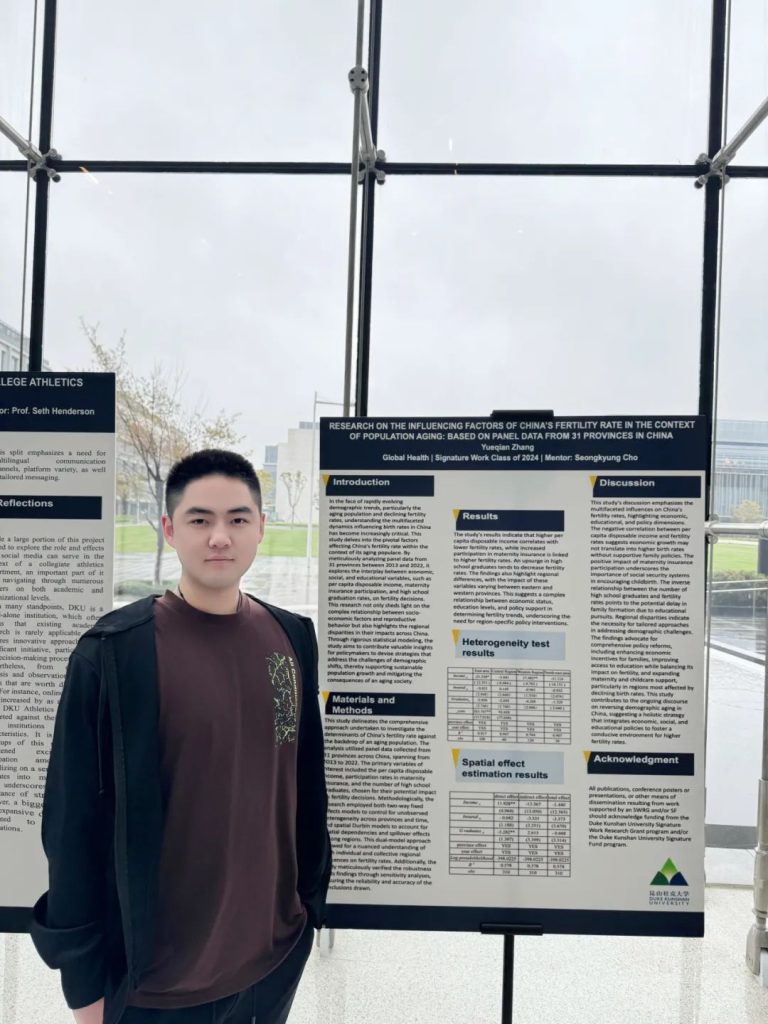
Signature Work Performance (Acquire “Graduation with distinction” award)
05 Meaningful Leadership Practice
Participating in the Peking University-Yale Summer Research Camp on the Economics of Healthy Aging was an extremely valuable and inspiring experience in my academic career. During the one-week summer camp, I had the opportunity to listen to wonderful lectures from top Professors from China and abroad, covering the core issues of healthy aging, including cognitive impairment, health care, nursing, and economic decision-making. These lectures not only broadened my academic horizons, but also gave me a deeper understanding of the complex health dynamics facing an aging society.
The most unforgettable thing for me during this summer camp was the community door-to-door survey conducted in the Daliang Mountain area of Sichuan. This field survey gave me the opportunity to directly contact local residents and understand their real-life situations when facing chronic diseases and economic difficulties. In the process of communicating with local residents, I deeply felt the huge impact of chronic diseases on their physical and mental health and family life and witnessed their tenacity and fighting spirit in the face of lack of medical resources and economic difficulties.
As the leader of the research team, I was responsible for leading the team to conduct household surveys, design detailed questionnaires, and conduct multiple on-site interviews to ensure the collected data was comprehensive and accurate. In the actual household survey process, we encountered many challenges, including language communication, residents’ cooperation, and data integrity. With the help of local college students, we successfully won the trust of residents through patient communication and detailed explanations, ensuring the high quality of the data.
This community household survey experience not only improved my data collection and analysis capabilities, but also gave me a deep understanding of the importance and complexity of field research. As a team leader, I learned how to lead and coordinate the team effectively, how to stay calm and find solutions when facing challenges. These experiences not only enriched my research experience, but also laid a solid foundation for my future work in the field of public health.
Through this summer camp and community survey, I not only gained a wealth of knowledge, but also met a group of like-minded scholars and professionals. This experience strengthened my interest in healthy aging research and strengthened my determination to continue my studies and contributions in this field.
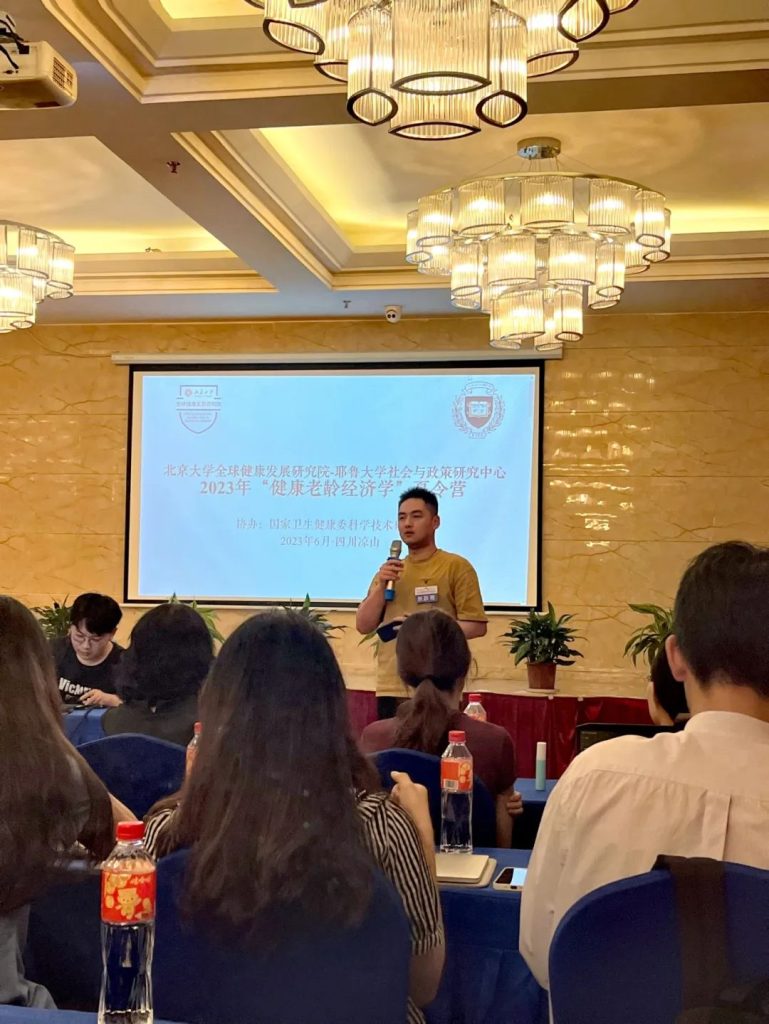
Share research experience in the summer camp
06 Colorful Extracurricular Life
In addition to my busy academic life, my extracurricular life is also colorful, especially in basketball. My classmates and I often make appointments to play basketball together after studying. These basketball activities not only add fun to our extracurricular life, but also allow us to find a way to balance under the heavy academic pressure. This positive and healthy lifestyle allows me to maintain a good state in both academics and life and devote myself to study and research with a fuller spirit.
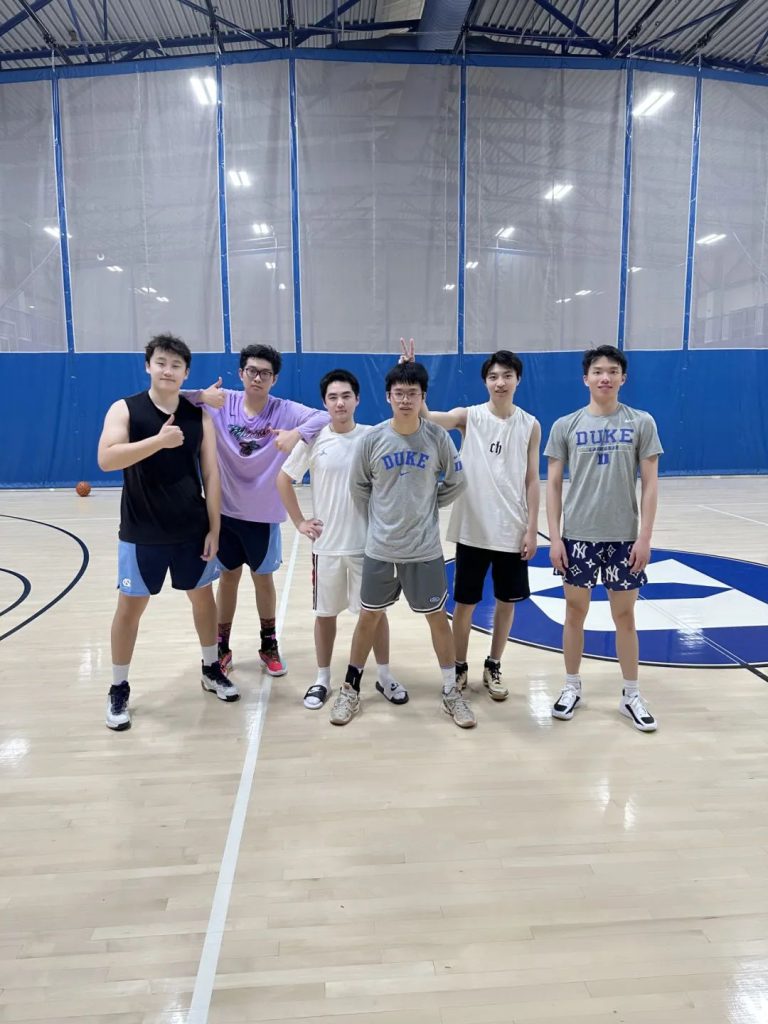
Intramural Basketball game in Duke
07 Suggestions To Fellow Students
Be brave to explore, try many ways, actively participate in scientific research projects, balance academics and extracurricular life; cultivate your own leadership, make more use of school resources, keep learning, and maintain curiosity; do not be afraid of failure, bravely pursue dreams, and realize your own unlimited possibilities.
Translated and Edited by Zhenyu Tian, Class of 2027
